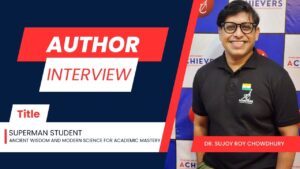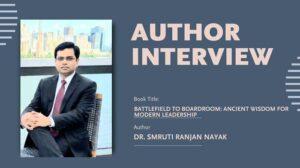
When silence failed, justice spoke. Read Justice Unwonted.
Title – JUSTICE UNWONTED
Sub Title- Proceedings of a Teacher from Classroom to Courtroom
Author – Dr. Mir Sadique Ali
ISBN – 9789363559417
Publisher – Evincepub Publishing
About The Book
Justice Unwonted: Proceedings of a Teacher from Classroom to Courtroom is a real-life courtroom drama interwoven with a profound educational crisis, exposing the systematic exploitation of educators in private self-financing institutions. This book is not just the personal journey of an esteemed academician, Dr. Aariz Ali, but a larger reflection of the struggle for justice within the Indian education system. It narrates the relentless battle fought against institutional corruption, bureaucratic delays, and judicial roadblocks, culminating in a landmark Supreme Court judgment that seeks to redefine the regulatory framework governing technical institutions in India.
The story captures how an educator, pushed out of the classroom, takes on an unrelenting fight in the courtroom to uphold the dignity of his profession. With its compelling narrative, legal intricacies, and philosophical undertones, Justice Unwonted is both an inspiring memoir and an urgent call for reform.
Question What inspired you to document this legal journey in Justice Unwonted? Was there a specific turning point that made you feel this story needed to be told?
Answer – As a confirmed Principal at an AICTE-approved, private self-financed engineering college, I was issued a premature retirement notice at the age of 62—despite clear AICTE norms prescribing 65 as the age of superannuation. It wasn’t just a violation of statutory law and contractual terms; it felt like a targeted act of institutional injustice.
When my objections were ignored, I turned to the courts. Relief from the Hon’ble High Court and later the Supreme Court not only upheld my rights—it triggered something far greater. Educators from across the country began reaching out, seeking guidance on how to assert their own.
That became the turning point. I realized how widespread the ignorance and silence were—how these gaps had enabled systemic exploitation of the teaching fraternity. I knew then that I had to share my journey—not as a legal memoir, but as a means of awareness and empowerment.
Justice Unwonted is the story of that fight—not just for myself, but for every teacher who has been wronged and told to stay silent. It’s a narrative that blends law with lived experience, and emotion with evidence. A voice, finally, for the voiceless.
Question – The book intertwines your protagonist’s personal experience with broader issues in the Indian education system. How much of Dr. Aariz Ali’s story is autobiographical?
Answer – Dr. Aariz Ali walks the path I once walked—his battles mirror mine, his silences echo my own. But Justice Unwonted is more than just my story. It’s a tribute to every teacher who stood tall when the system tried to shrink them.
Yes, the spine of the book is autobiographical—but its soul belongs to many. Aariz is not just me; he’s all of us who chose dignity over surrender, and truth over convenience.
Question – Could you share some of the biggest challenges you faced while translating a complex legal battle into a narrative that remains engaging and accessible to readers?
Answer – Condensing a 1128-page legal compilation—submitted before the Hon’ble Supreme Court—into a story that breathes was no small task. Law is precise, structured, often unforgiving. But lived experience trembles, hesitates, breaks—and heals.
The real challenge wasn’t just simplifying statutes or judgments, but softening their edges without losing their weight. I had to reveal the human beneath the litigant, the teacher beneath the petitioner.
It meant distilling years of hearings, affidavits, and cross-references into moments that could be felt, not just understood. This wasn’t just a legal memoir—it was a journey through justice, where silence often spoke louder than words.
In that journey, the courtroom itself became a character—the silence of delay, the irony of process, and the quiet triumph of standing firm all found their voice in Justice Unwonted.
Question – What kind of emotional toll did this transition—from the classroom to the courtroom—have on you personally, and how did you cope with it?
Answer – The transition from classroom to courtroom wasn’t just professional—it was deeply personal. After decades of nurturing young minds, being thrust into legal battles felt like exile from my very purpose. The chalk gave way to case files, the blackboard to affidavits. It was disorienting—and at times, deeply isolating.
There were moments when the silence of injustice felt heavier than any legal argument. I often asked myself: Why must a teacher fight for what is already guaranteed by law?
What kept me going was a deep belief in the sanctity of education and justice. I drew strength from my students, my family’s quiet support, and the thought that this fight was larger than me—it was for every silenced educator.
Writing Justice Unwonted became my therapy. It gave structure to my wounds, and voice to my resolve. And in telling the story, I found healing.
Question – Many readers will be shocked to learn about the exploitation of teachers in self-financing institutions. What systemic changes do you believe are most urgently needed?
Answer – Regulatory bodies like AICTE, Governments—both Central and State—Directorates of Technical Education, and affiliating Universities must shed their bureaucratic indifference and take proactive responsibility. It is no longer enough to merely prescribe norms on paper; there must be firm, transparent, and time-bound enforcement. And when such matters are represented before courts of law, the gravity of statutory norms favouring teachers must be emphatically brought to the forefront.
We often celebrate the vision of the National Education Policy (NEP) 2020, which places teachers at the heart of educational transformation. But this vision must translate into action. Teachers—especially those in self-financing institutions—deserve not just recognition, but respect, security, and lawful treatment.
Infrastructure, laboratories, and buildings may provide the frame, but the teacher is the lifeblood of any academic institution. Teaching and learning are humanistic processes. They shape not just skills, but generations. If we are serious about reforming education, we must begin by restoring dignity and justice to our educators.
Question – Your story culminates in a landmark Supreme Court judgment. How do you feel about the legal system today—do you see it as an ally or a challenge in the fight for educational justice?
Answer – In my experience, the legal system—with all its protocols—is both a challenge and an ally. It tests your patience, demands active involvement, and may often feel distant. Yet, when approached with vigilance and persistence, it proves to be the final and strongest hope for justice. And it does deliver—provided you remain proactive and don’t leave everything to your counsel.
My journey through the Tribunal, the High Court, and finally the Hon’ble Supreme Court was long and testing. But in the end, it was the judiciary that upheld the law, reaffirmed statutory protections, and reminded the nation that teachers are not expendable—they are entitled to dignity, security, and justice.
One truth stood out clearly: Law benefits only those who assert their rights. As the Hon’ble Supreme Court has repeatedly affirmed, “Equity aids the vigilant, not those who slumber on their rights” — State of Maharashtra v. Digambar, (1995) 4 SCC 683.
In the end, the Court became the voice I couldn’t find anywhere else. That judgment was not just a personal accomplishment—it became a symbol of hope for every teacher afraid to speak up.
Question – Did you encounter any resistance—personally or professionally—when deciding to publish this book and bring this issue to light?
Answer – Not at all. On the contrary, my teaching fraternity welcomed the book as a long-overdue voice. Since I dared to fight the battle up to the Hon’ble Supreme Court, many saw Justice Unwonted as a natural extension of that journey.
Rather than resistance, I found quiet encouragement from colleagues who had long felt silenced. The book gave them hope—and a reminder that justice, when pursued with courage, shall prevail.
Question – There’s a philosophical undercurrent to your writing. How did your academic background influence your perspective on justice, ethics, and institutional responsibility?
Answer – My academic journey taught me that education is not merely about knowledge transfer—it is about shaping character, nurturing integrity, and upholding responsibility. I am an engineer by training, but a teacher by profession. Years spent in classrooms and academic councils instilled in me a deep respect for systems built on fairness, reason, and accountability.
As a teacher and academic administrator, I believed—and still believe—that institutions must lead by example. If we expect students to honour ethics, then those who run educational institutions must be held to even higher ethical standards. When that trust is broken, the damage runs deeper than any legal violation—it erodes the very soul of education.
That’s why justice, in Justice Unwonted, is not just legal—it’s moral. My background helped me see the courtroom not merely as a place of litigation, but as an extension of the classroom, where truth must still be taught and principles must still prevail.
Question – What message or call to action do you hope readers—especially educators and policymakers—take away from Justice Unwonted?
Answer – The central message of Justice Unwonted is simple yet urgent: silence is not a virtue when rights are at stake. For educators, I hope the book inspires the courage to speak, to question, and to stand firm—because teaching is not just a profession, it is a responsibility to uphold truth, even when the system resists it.
For policymakers and institutional leaders, the call is clearer still—regulations without accountability are mere formalities. If we genuinely value education, then we must value the educator—not in policy papers, but in lived realities.
The time has come to shift from tokenism to transformation. Let Justice Unwonted be a reminder that justice delayed in the education system is not just an administrative lapse—it is a betrayal of the generations we are meant to shape.
Question – Are there plans for a follow-up work, or are you involved in any ongoing reforms or advocacy efforts in education that readers should know about?
Answer – Yes, I’m currently working on a companion volume titled Justice Annotated. This follow-up aims to present all the case laws cited in Justice Unwonted—not in legal jargon, but in a simplified, reader-friendly format accessible to educators, students, and common citizens alike.
Through this work, I hope to reinforce a message that runs deep through both books: Law helps those who dare to assert their rights—a secular reflection of the timeless truth that God helps those who help themselves.
Litigation may come at a cost, but when pursued with clarity, courage, and purpose, it doesn’t just deliver justice—it defines your reason for being. My objective is to help teachers realise that silence isn’t sacrifice—it’s surrender. And the law, like life, rewards those who dare to reverberate. My larger mission is to demystify legal processes for educators and empower them to stand up—not just in classrooms, but also in courtrooms, when justice demands it.

